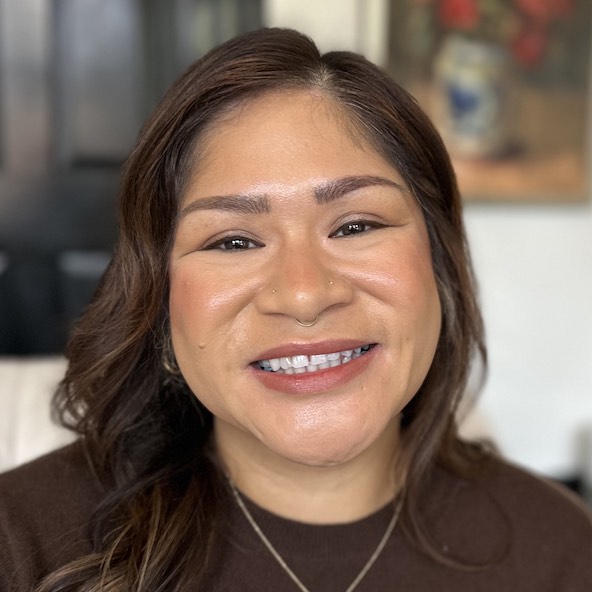
Sometimes it seems like we’re our own worst enemy, doesn’t it? No matter what we do, there’s that little voice in the back of our mind telling us that we’re not enough, that we’re not worth it, that we can’t do anything right. That voice is your inner critic, and most of the time, it presents a distorted picture of reality. We all have an inner critic that rears its head at times, but some of us have a louder critic than others. And if you’re trying to deal with trauma, that inner critic can be a real stumbling block for your progress. Today, we’re going to talk about the inner critic and help you overcome it!
What Is The Inner Critic?
The “inner critic” is a psychological concept representing the internalized voice or set of thoughts that criticizes and judges yourself. It’s an internal dialogue characterized by harshness, negativity, and often irrationality. This inner voice tends to focus on your perceived flaws, mistakes, and shortcomings, amplifying feelings of inadequacy and self-doubt.
The origins of the inner critic can be traced back to various sources, including childhood experiences, societal standards, and cultural influences. For instance, if a person grew up in an environment where criticism was prevalent or received excessive negative feedback, they may internalize these messages, leading to the development of a strong inner critic. Additionally, societal pressures to conform to certain ideals of success, beauty, or achievement can also contribute to the formation of the inner critic.
The inner critic manifests itself through various means, such as negative self-talk, self-sabotaging behaviors, and perfectionism. It often exaggerates the significance of perceived flaws and mistakes, leading you to be overly critical of yourself and your actions. This can create a cycle of self-doubt and anxiety, inhibiting personal growth and fulfillment.
The Inner Critic vs. the Inner Voice
The inner critic and the inner voice are both aspects of your internal dialogue, but they serve different purposes and have distinct characteristics. The inner critic focuses on perceived flaws, mistakes, and shortcomings, leading to feelings of inadequacy and self-doubt. It tends to exaggerate the significance of negative experiences and can hinder personal growth and well-being.
On the other hand, the inner voice encompasses a broader range of thoughts and feelings, including intuition, values, and self-awareness. It serves as a guide and reflects one’s authentic self, offering insights and perspectives that align with personal goals and values. Unlike the inner critic, the inner voice is more compassionate, supportive, and constructive, providing encouragement and understanding during challenging times.
While the inner critic undermines self-confidence and perpetuates negative self-talk, the inner voice fosters self-awareness and empowerment, guiding you towards personal growth and fulfillment. Recognizing the difference between the two and learning to quiet the inner critic while listening to the inner voice can help you cultivate a more positive and balanced internal dialogue.
The Inner Critic and Trauma
For many folks, there’s a complex relationship between the inner critic and healing from trauma. The inner critic’s reaction to trauma tends to intensify the emotional impact of traumatic experiences. Trauma often triggers the inner critic to become hyperactive and relentless, amplifying feelings of self-blame, shame, and worthlessness. It distorts the perception of the traumatic event, leading you to internalize false beliefs about yourself and their your in the trauma.
As you’re trying to process trauma, your inner critic may constantly replay the events, leading you to blame yourself for not preventing or avoiding the traumatic experience. This self-blame can exacerbate feelings of guilt and powerlessness, hindering the healing process. Additionally, the inner critic may magnify perceived flaws or weaknesses. It tries to convince you that you deserved the trauma or are fundamentally flawed as a result– even though that isn’t the case at all!
The inner critic can also contribute to the development of maladaptive coping mechanisms, such as avoidance or self-destructive behaviors. This often happens when you try to silence or numb the relentless self-criticism. This can further perpetuate the cycle of trauma and exacerbate mental health challenges.
How To Overcome the Inner Critic
The good news is that you can overcome your inner critic. It takes time and work, and many people find that professional guidance can help a lot. Often, techniques from dialectical behavioral therapy (DBT) can be useful. Here are some ways that you can gain control over your inner critic while recovering from trauma, instead of it controlling you.
Recognize the Inner Critic: Become aware of when the inner critic is active and how it manifests. Notice the negative thoughts and self-talk that arise, particularly in response to triggers related to the trauma. Simply recognizing that there is an inner critic can go a long way towards helping you overcome it.
Challenge Negative Beliefs: Question the validity of the inner critic’s messages. Challenge distorted beliefs and self-blame by examining evidence that contradicts them. Consider alternative, more balanced perspectives.
Practice Self-Compassion: Treat yourself with kindness and understanding, especially during difficult moments. Practice self-compassionate statements, acknowledging your pain and suffering without judgment. Treat yourself as you would a friend in distress. Would you let somebody say what your inner critic is saying about your best friend? Of course not! You deserve that same love and compassion.
Mindfulness and Grounding Techniques: Use mindfulness practices to stay present and grounded when the inner critic becomes overwhelming. Focus on your breath, engage your senses, or practice grounding exercises to center yourself in the present moment.
Set Boundaries with the Inner Critic: Establish boundaries with the inner critic by refusing to engage with its destructive messages. Acknowledge its presence without giving it power over your thoughts and emotions.
Seek Support: Connect with supportive friends, family members, or a therapist who can offer validation, empathy, and guidance. Share your experiences with trusted people in your life who can provide perspective and help counteract the inner critic’s influence.
Engage in Self-Care: Prioritize activities that promote your well-being and self-esteem. Engage in hobbies, exercise, relaxation techniques, or any activities that bring you joy and fulfillment.
Practice Patience and Persistence: Healing from trauma and managing the inner critic is a gradual process that takes time and effort. Be patient with yourself and persistently practice self-compassion and challenging negative beliefs.
By implementing these steps, you can start to manage the inner critic while healing from trauma, fostering resilience and promoting overall well-being. By acknowledging that the inner critic’s voice is not reflective of reality and learning to respond to it with kindness and understanding, you can gradually diminish its influence and foster a more balanced and compassionate self-perception.
Finding Support While Recovering from Trauma
Trauma is hard enough to deal with without your inner critic yelling in your ear. That’s why therapy can be instrumental in helping you through this process. With their expertise in trauma-informed care, therapists can empower you to cultivate self-compassion, resilience, and a sense of empowerment on your healing journey. Take the first step towards healing and schedule a session with a therapist at Love Heal Grow today. We’re here for you!

























